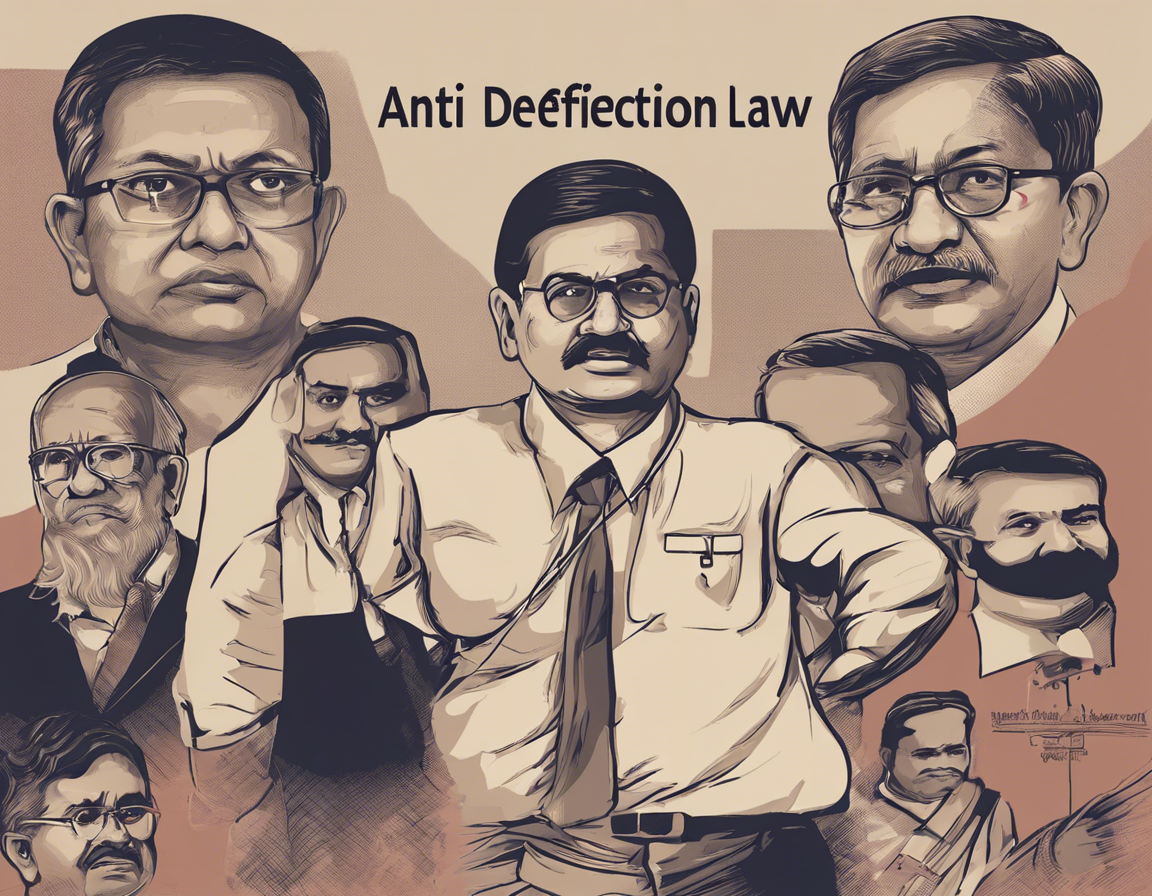Understanding India’s Anti-Defection Law: A Comprehensive Analysis.
India’s Anti-Defection Law is a crucial aspect of the country’s political landscape, aimed at ensuring the stability of the government by preventing elected representatives from switching parties arbitrarily. Enacted in 1985 as the Tenth Schedule of the Indian Constitution, this law was a response to the issue of lawmakers frequently changing party allegiance, which led to political instability and horse-trading. In this article, we will delve into the intricacies of India’s Anti-Defection Law, discussing its history, provisions, significance, impact on democracy, and recent developments.
History of India’s Anti-Defection Law
The roots of the Anti-Defection Law in India can be traced back to the 1967 case of Gaya Prasad vs. Dr. Prasad where the Supreme Court highlighted the need for such legislation. The law was eventually enacted in 1985 through the 52nd Amendment Act during Rajiv Gandhi’s tenure as Prime Minister. It was a response to the growing trend of politicians switching parties for personal gains, leading to a lack of stability in governments at both state and national levels.
Provisions of the Law
The Anti-Defection Law primarily focuses on two key aspects: disqualification of lawmakers who defect and regulating mergers of political parties. According to the law, a member of a house belonging to a political party can be disqualified if he voluntarily gives up his membership of the party or votes or abstains from voting in the house against the party’s directives. The law applies to both Parliament and State Legislatures. It also provides certain exceptions like a split in the party by one-third of its members or violations in the merger process.
Significance of the Anti-Defection Law
The introduction of the Anti-Defection Law was a significant step towards ensuring political stability in India. It aimed to prevent unethical practices like horse-trading and defection, which could undermine the democratic principles of the country. By discouraging lawmakers from switching parties at will, the law seeks to promote party discipline, accountability, and adherence to the mandate given by the voters.
Impact on Democracy
While the Anti-Defection Law has been instrumental in curbing defections to a certain extent, it has also faced criticisms for certain drawbacks. Some argue that the law undermines the legislators’ independence and restricts their freedom to dissent or vote according to their conscience. It has been observed that the law has been misused by political parties to stifle internal dissent and enforce unquestioning loyalty among members.
Recent Developments and Challenges
In recent years, there have been debates on amending the Anti-Defection Law to address its shortcomings and prevent its misuse. The Law Commission of India has recommended certain changes to make the law more effective and in line with democratic principles. However, any amendment must strike a balance between preventing defections and ensuring that lawmakers have the freedom to express their opinions without fear of disqualification.
FAQs on India’s Anti-Defection Law
Q1: What is the punishment for violating the Anti-Defection Law in India?
A1: The punishment for violating the Anti-Defection Law is disqualification from holding office as a Member of Parliament or Member of the State Legislature.
Q2: Can a lawmaker voluntarily resign from their party without facing disqualification?
A2: Yes, a lawmaker can resign from their party voluntarily without facing disqualification under certain conditions outlined in the Anti-Defection Law.
Q3: Can a member of a political party be disqualified for abstaining from voting on a particular issue?
A3: Yes, a member of a political party can be disqualified for abstaining from voting in the house against the party’s directives, as per the provisions of the Anti-Defection Law.
Q4: What is the rationale behind allowing for a split in a political party as an exception to the Anti-Defection Law?
A4: Allowing for a split in a political party as an exception to the Anti-Defection Law recognizes the legitimate differences within a party that may lead to a faction forming a new entity.
Q5: Has the Anti-Defection Law been successful in curbing defections in India?
A5: While the Anti-Defection Law has reduced the frequency of defections to some extent, there have been instances of its misuse and challenges in its implementation that continue to be debated.
In conclusion, India’s Anti-Defection Law plays a vital role in maintaining the integrity of the political system by discouraging opportunistic party-switching and ensuring that elected representatives uphold the party’s ideologies and the people’s mandate. However, the law must evolve with changing political dynamics and address its shortcomings to strike a balance between party discipline and legislators’ freedom of expression and dissent.

